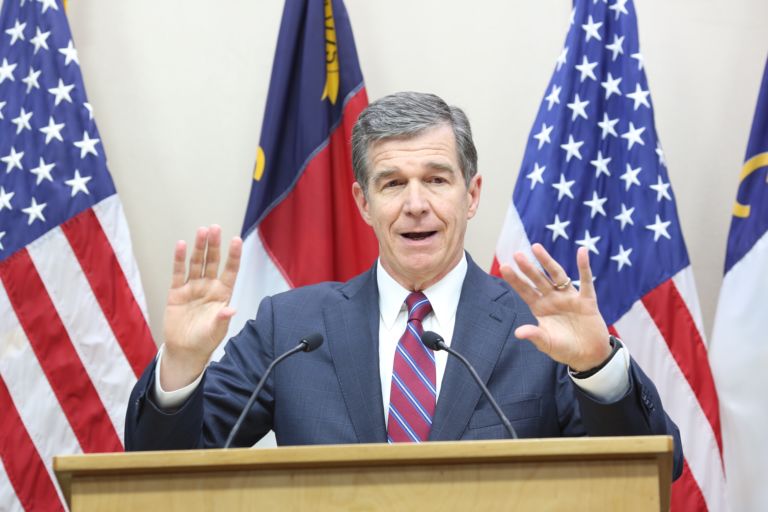Just before Labor Day, Gov. Roy Cooper signed the final bill appropriating money from North Carolina’s $3.6 billion share of the Coronavirus Trust Fund. He was clearly under duress. A veto of the bill that passed with large bipartisan majorities would surely have been overridden.
Cooper had offered his spending recommendations for the remaining federal money a week earlier. He also suggested spending the entire $1.5 billion of unreserved fund balance to cover planned appropriations and another billion dollars in new appropriations, plus expanding Medicaid while ignoring the “woodwork” potential for those already eligible to sign up, and taking on $5.3 billion in debt. Such recklessly unrealistic spending would take your breath away if the length of the last sentence had not.
Legislators had delayed action on the federal money in hopes that Congress would provide guidance. Senate Republicans’ “skinny” COVID relief bill from could not get 60 votes to break a filibuster, however, making it clear the General Assembly would need to reallocate $900 million appropriated earlier in anticipation of flexibility from Congress to use the money to offset lost revenue. Legislators also reallocated $50 million that Golden LEAF could not send to small businesses.
Education funding marked the sharpest disagreement and the strongest rebuke to Cooper’s priorities. Where the governor had proposed bonuses for teachers to make up for the pay raises he vetoed last year, the General Assembly provided families with $335 to offset the expense of adapting to online education, something for which schools had already received millions of dollars.
More pointedly, the General Assembly expanded funding and eligibility for Opportunity Scholarships and education savings accounts to help poor families pay for private school and students with disabilities receive programming impossible to provide online. Cooper had sought to limit the scholarships to those already receiving them, even though more low-income parents have sought private schools so their children could benefit from in-person instruction.
What made it possible for a staunch opponent of opportunity scholarships, though one who sent his own daughter to private school, to sign the bill? It was another provision requiring no new appropriations that held school districts harmless if their student enrollment fell this year.
Cooper would have raised the upper limit on unemployment benefits from $350 to $500 per week, helping only those who lost jobs with an hourly wage above $17.50. The final law provides everyone receiving state unemployment benefits $50 more per week.
The final bill also protects the Unemployment Insurance Trust Fund. It uses $137 million from the Coronavirus Relief Fund to pay the extra benefits with a promise of General Fund appropriations to hold the Trust Fund harmless. Cooper would have paid benefits from the Trust Fund without penalty to employers in a move that would have drained the Trust Fund and led to future unemployment tax hikes.
August’s General Fund Monthly Report from the State Controller shows revenue collection since April is not far off the pace of a year ago. Total General Fund tax revenue is down $136 million (1.2%) from the same five months in 2019, but that is $965 million (9.6%) more than in 2018. Deadlines for filing and paying 2019 personal and corporate income tax moved to July from April, and the deadline for first and second quarter estimated taxes moved to August 15, which made July look much better, but made April look much worse. Surprisingly, sales tax revenue has rebounded as well, up 11% for July and August compared to 2019. This may reflect pent-up demand as sales tax revenue was down $400 million from April through June.
With these results in hand, the General Assembly’s fiscal staff may be more comfortable projecting the next nine months as society shifts from lockdowns to living with the new coronavirus. Legislators could return for a special session in October but should continue to exercise caution. If they do, they can start firm in the knowledge that Cooper’s spending proposal need not be an impediment to gaining bipartisan support for prudent fiscal decisions.


